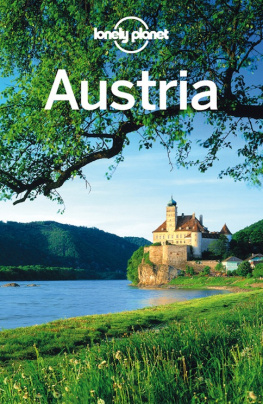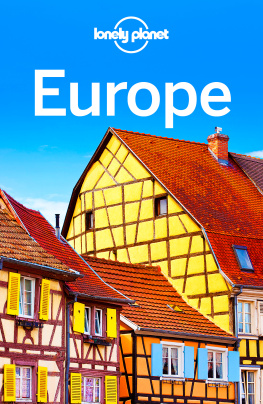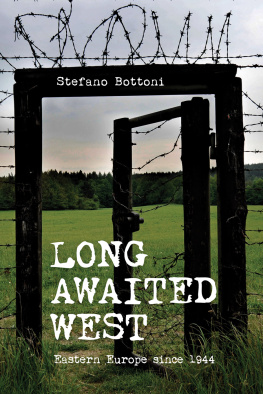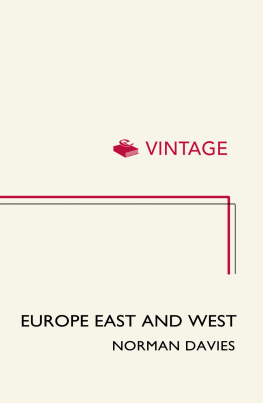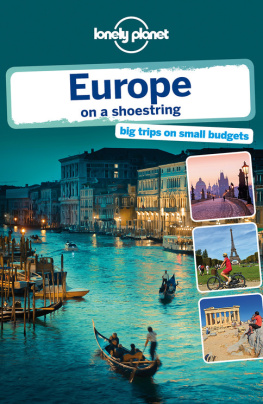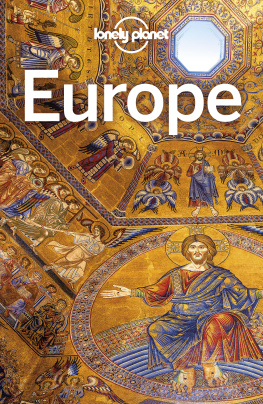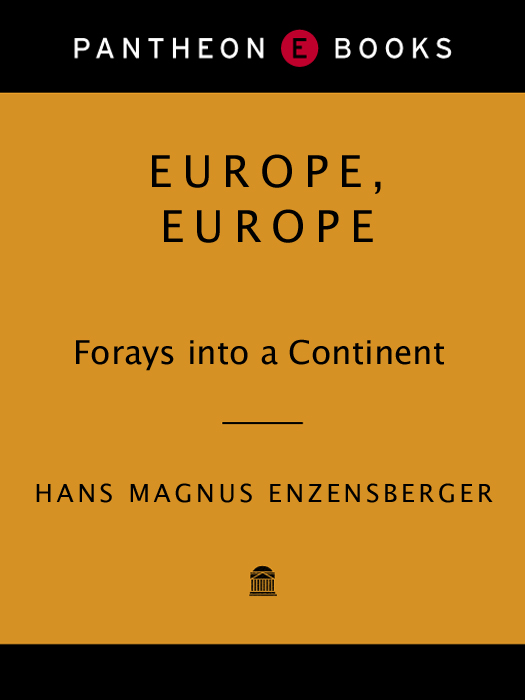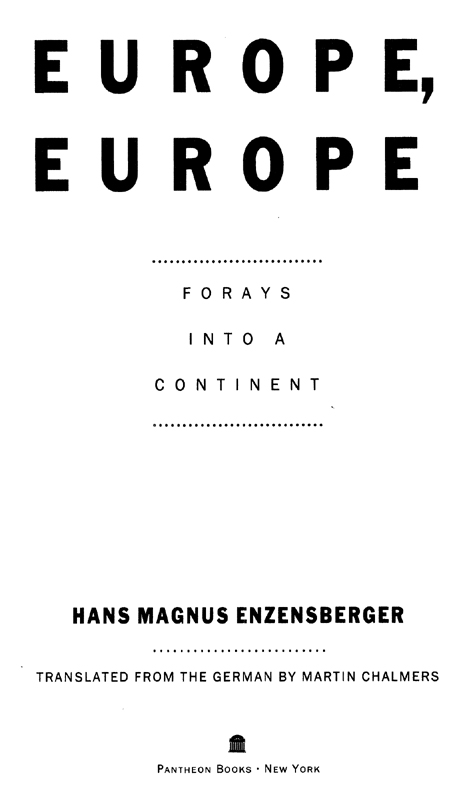ALSO BY HANS MAGNUS ENZENSBERGER:
POLITICS AND CRIME
THE CONSCIOUSNESS INDUSTRY
THE HAVANA INQUIRY
CRITICAL ESSAYS
POEMS FOR PEOPLE WHO DONT
READ POEMS
MAUSOLEUM: THIRTY-SEVEN BALLADS FROM THE HISTORY OF PROGRESS
THE SINKING OF THE TITANIC
Translation Copyright 1989 by Random House, Inc.
All rights reserved under International and Pan-American Copyright Conventions. Published in the United States by Pantheon Books, a division of Random House, Inc., New York, and simultaneously in Canada by Random House of Canada Limited, Toronto.
Originally published in the Federal Republic of Germany, in slightly different form, as Ach Europa! by Suhrkamp Verlag, Frankfurt am Main. Copyright 1987 by Suhrkamp Verlag, Frankfurt am Main. This translation originally published in hardcover by Pantheon Books, a division of Random House, Inc., in 1989.
Library of Congress Cataloging-in-Publication Data
Enzensberger, Hans Magnus.
Europe, Europe.
Translation of: Ach Europa!
1. EuropeDescription and travel1971
2. Enzensberger, Hans MagnusJourneysEurope.
3. Poets, German20th centuryJourneysEurope.
1. Title.
D923.E5913 1989 838.91403 [B] 88-43121
eISBN: 978-0-307-77250-3
Grateful acknowledgment is made to the following for permission to reprint previously published material:
P RINCETON U NIVERSITY P RESS : excerpts from Bohemia Lies by the Sea, from In the Storm of Roses: Selected Poems by Ingeborg Bachmann, edited and translated by Mark Anderson. Copyright 1986 by Princeton University Press. Reprinted by permission of Princeton University Press.
R ANDOM H OUSE , I NC .: adaptation of selection on from A Warsaw Diary, 19781981, by Kazimierz Brandys, translated by Richard Lourie. Translation copyright 1983 by Random House, Inc. Reprinted by permission of the publisher.
Translators Note: I should like to thank my friend Bob Lumley for so much perceptive advice during the preparation of this translation, and my editor, Helena Franklin, of Pantheon Books, for being so patient.
v3.1
CONTENTS
EPILOGUE:
THE SEACOAST OF BOHEMIA, 2006
SWEDISH AUTUMN
[1982]
THE ELECTION PARTY
It doesnt matter who we vote for or what the result is, because were all Social Democrats, said the gentleman in the well-worn tweed jacket, raising a tumbler of red wine.
His remark did not surprise me. The election party to which I had been invited was taking place in the Old Town of Stockholm in the apartment of a prominent intellectual in the working-class movement, and I had the impression that it was to be a gathering of the party faithful to celebrate the forthcoming victory of Olof Palme. It was 1982 and Palme was at the height of his career, which was to end so tragically four years later. The apartment was furnished modestly and without much care. It was almost a little shabby: oddly assorted chairs, old posters on the walls, books in rough-hewn bookcases. Young married teachers in Frankfurt or Berlin live just this way, as do writers of radio plays or art historians who have managed to get a postgraduate grant. The apartment did not have an air of money, prestige, ambition. Reassured, I leaned back in anticipation of the first computer projections and ate a piece of smoked meat from the paper plate. After all, the intellectual in West Germany is used to such comfortable corners and niches far from the seats of power.
Then, however, at the improvised bar in the passageway, a helpful soul began to enlighten me. The gentleman in the tweed jacket was, it turned out, not the secretary of the local teachers union but a much-feared journalist who wrote notorious lead articles for the countrys largest Conservative newspaper; the almost too elegant man just fetching a piece of cheese from the kitchen was a star architect in Stockholm; the morose woman in running shoes had for years been in charge of the Ministry of Social Affairs; the art teacher with graying temples was not an art teacher at all but a former ambassador; even the lady with the camera who took snapshots all evening without anyone paying the least attention to her was by no means an ordinary reporter, or the hosts aunt, but one of the richest heiresses in Sweden.
Unsuspectingly I had stumbled into a gathering that any research sociologist would call, without hesitation, the countrys power elite, even if those present would have completely rejected such a description. Power elite is a horrible expression, and nowhere could it sound less appropriate than here in Stockholmnot even in Tirana or Phnom Penh.
Somewhere in a corner a small television is on. The guests talk animatedly, drowning out the commentators voice, and only occasionally glance at the early returns. Not a trace of tension or excitement, no election fever. I had already been struck, in the days before the poll, by the extraordinary calm with which the Swedes approached their election campaign and by the stoical politeness of the speakers. In most democratic countries the campaign season is the time when the gray routine of party politics is transformed into public theater. An election is, an exhibition bout, a carnival, a purification ritea kind of football championship of rhetoric in which pent-up aggressions and suppressed emotions surface. Its an outlet for the frustrations, defeats, and disappointments of everyday politics. And especially when nations feel that their future might be at stake, the election is like a destructive potlatch, a national brawl in which what normally is forbidden is briefly permissible: open rivalry, ruthless polarization, the eruption of hatred, dissatisfaction, and ill will.
No one can say that the Swedes are simply short of reasons for getting excited. Im told that the national budget shows a deficit of 78 billion kroner for 1981more than 11 billion Every Swede who reads a newspaper knows that his personal share of the national debt is 38,000 kroner (approximately $5,400), which amounts to more than 300 billion ($43 billion) for the state as a whole. And while official statistics cite 170,000 unemployed, everyone realizes that its a cosmetic figure, that the real number is closer to 500,000. As if all this were not enough, the trade unions have placed a monster of a plan on the political agenda, just in time for the election. The famous Employees Fund, which has been called a utopian white elephant by some and an economic King Kong by others, makes an almost ideal bone of contention. In any other Western nation it would have triggered an ideological civil war. If I have understood this proposal correctly (and if not, I wont be the first person to have lost his way among its pitfalls and elastic clauses), it amounts to a demand as simple as it is audacious: the capitalists are to pay for the rope by which the trade unions want to hang them.
Of course, in an orderly country like Sweden no one puts it so bluntly. Perhaps its not even meant to be taken quite seriously; perhaps the trade unions were only sending up a trial balloon. Perhaps some left-winger only wanted to breathe a bit of life into the proceedings, and after a few hostile election posters, a few cautious interviews, and examination by a couple of parliamentary committees the plan will end up being shelved. A number of those present at the party, including a man who plays tennis with Olof Palme and another who goes on summer trips with him, assure me that the future prime minister is not very happy with the idea and took it up only to pacify some of the trade union leaders.


